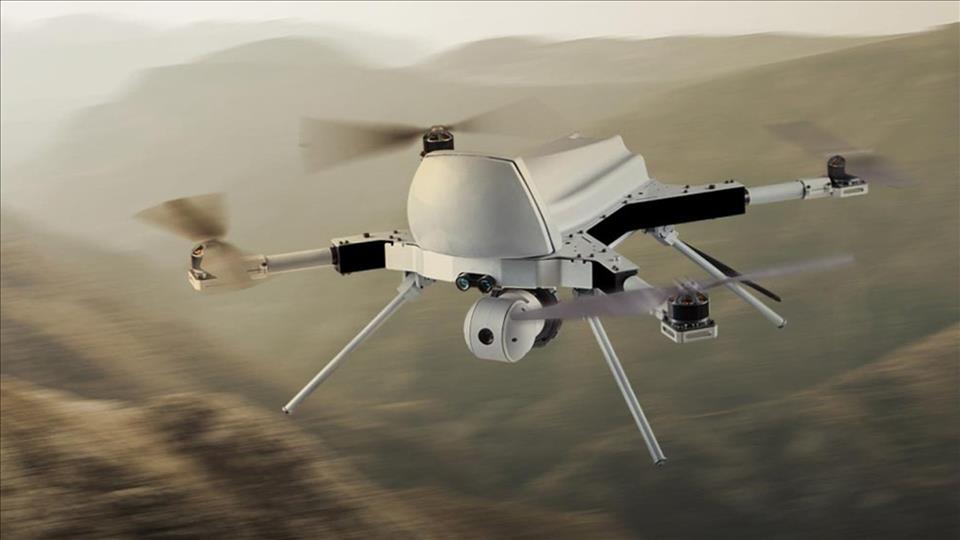
Ban On 'Killer Robots' Faces Showdown In Geneva
In March 2020 the Libyan government used a Kargu-2 quadcopter in the civil war, according to a United Nations reportExternal link . This drone“hunted” a human target without being instructed to do so. It was the first time in history that an autonomous lethal weapon – also known as a killer robot – had been deployed.
These weapons systems, developed using robotics and artificial intelligence, do not require human operation. Autonomous drones, for example, are programmed to approach a specific position, select an object and kill the target without any contact with a controlling human. As the incident in Libya shows, killer robots can also act independently. Unlike weapons of mass destruction, there are no specific treaties or regimes that condemn or prohibit these weapons and technologies internationally.
How weapons of mass destruction are kept under controlWeapons of mass destruction (WMD), such as nuclear, biological and chemical arms (ABC weapons), have greater destructive power than conventional arms. They can kill a large number of people and destroy the environment within a very short time.
WMD are governed by disarmament and non-proliferation treaties that are binding under international law, such as the Treaty on the Non-Proliferation of Nuclear Weapons, the Biological Weapons Convention or the Chemical Weapons Convention. They are intended to prevent the proliferation of nuclear weapons and to outlaw biological and chemical weapons worldwide.
In addition, there are four politically binding regimes under which participating states expand and harmonise their export controls: the Nuclear Suppliers Group, the Australia Group, the Missile Technology Control Regime and the Wassenaar Arrangement. Switzerland participates in all four.
Source: SECO External link
End of insertionOpinions differ as to whether this should be viewed as an omission. In response to a question from SWI swissinfo.ch, the Swiss foreign ministry wrote that international humanitarian law applied to all weapons and technologies, including new ones such as autonomous weapons systems.“So there is no vacuum for the use of robotics, artificial intelligence and other digital technologies in armed conflicts,” it said.
Not everyone in the international community agrees.“Some states think existing legislation is insufficient,” said Laura Bruun, an expert on new military and security technologies at the Stockholm International Peace Research Institute. While international humanitarian law covers all types of weapons, the use of AI-controlled military technologies is not explicitly regulated, she said.“This creates a normative vacuum, depending on how the law is interpreted.”
EU or UNESCO rules on the ethical use of AI refer to civilian applications, not military ones, Bruun said. As new technologies such as artificial intelligence advance, it becomes increasingly difficult to differentiate between the civilian and military potential of a development. The fact that these technologies are very easy to disseminate – AI software can even be distributed via email or open source – complicates regulatory and monitoring procedures.
“Of course, international humanitarian law applies to the use of such weapons, but international regulations that take into account new types of technology are needed,” said Elisabeth Hoffberger-Pippan, a security researcher and international law expert at the German Institute for International and Security Affairs in Berlin.
Dim prospects for Geneva talksThe UN has been negotiating a ban on autonomous weapons systems in Geneva since 2017. Switzerland supports these negotiations in principle, because although it rejects a complete ban, it is in favour of regulations, controls and restrictions. Last year the Swiss mission to the UN formulated a proposalExternal link to regulate lethal autonomous weapons, joining the group of countries pushing for legally binding measures.
But there has been no progress, since Russia rejects almost every proposal for regulation. Russia even boycotted the most recent round of negotiations in March because of the ongoing war in Ukraine. But Israel, the US, Turkey, the UK and South Korea also oppose any binding regulationExternal link of autonomous weapons systems, as they believe that international humanitarian law provides an adequate framework for a responsible approach to these weapons.

Legal Disclaimer:
MENAFN provides the
information “as is” without warranty of any kind. We do not accept
any responsibility or liability for the accuracy, content, images,
videos, licenses, completeness, legality, or reliability of the information
contained in this article. If you have any complaints or copyright
issues related to this article, kindly contact the provider above.


















Comments
No comment